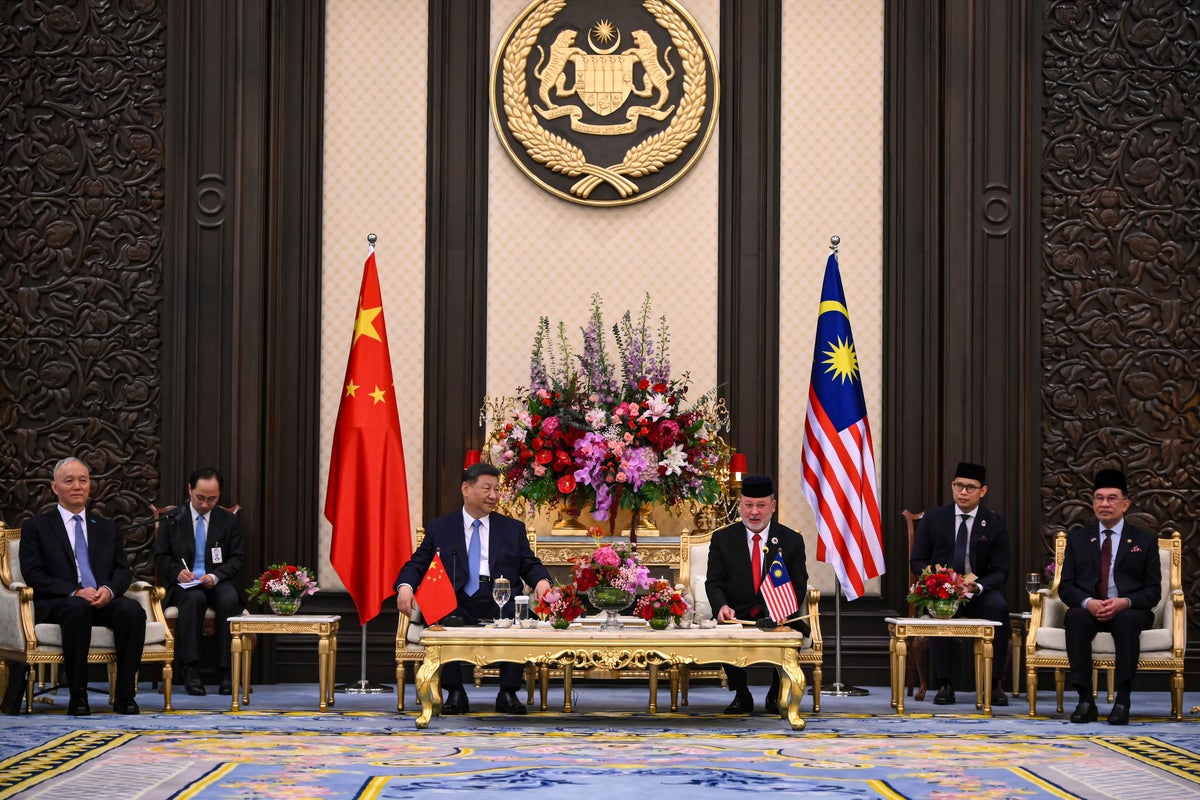
Chinese leader Xi Jinping has promised Malaysia and Vietnam greater access to Chinese markets as he tours Southeast Asia this week.
“China welcomes more high-quality agricultural products from Malaysia to enter the Chinese market and encourages Chinese companies to invest and start businesses in Malaysia,” Xi said in his meeting with Malaysia's king, Sultan Ibrahim Iskandar, on Wednesday, according to the official Xinhua News. He also mentioned further developing cooperation in green tech and artificial intelligence.
Xi's tour comes after U.S. President Donald Trump's tariff announcements disrupted the global economy last week, and he has used the trip to promote Beijing as a source of stability in the region. It's also a chance for Beijing to shore up its own relationships in the region and look for ways to mitigate the 145% tariffs that Trump has kept on China, even as he paused tariffs for other countries.
Xi kicked off his tour with a state visit to Vietnam, and arrived in Kuala Lumpur, Malaysia’s capital, for a three-day visit Tuesday. He met with Prime Minister Anwar Ibrahim on Wednesday.
Malaysia is home to several Belt and Road Initiative projects, including a $11.2 billion Chinese railway project, which Xi discussed in his meeting with the king. China is also its largest trading partner and a top source of foreign direct investment.
In Hanoi, Xi had a meeting with Vietnam’s Communist Party General Secretary To Lam, as well as senior leaders including the president and prime minister. China and Vietnam signed a series of memorandums on cooperation in supply chains and a joint railway project, and Xi also promised greater access for Vietnamese agricultural exports to China, although few details were made public about the agreements.
On Wednesday, China's Ministry of Commerce confirmed that China and Vietnam had signed a memorandum “to build a smooth, stable, and resilient industrial chain and supply chain..., and further deepen trade and investment cooperation" between businesses from the two countries, without any further details.
China had also agreed to deepen its defense partnership with Vietnam, according to the Ministry of Defense, which issued a statement Wednesday. The statement did not specify details. The two sides agreed to “enhance cooperation in areas such as political work, maritime security, joint exercises and personnel training, and elevate the military-to-military relations to a new level.”
—-
AP researcher Yu Bing contributed to this report from Beijing.







